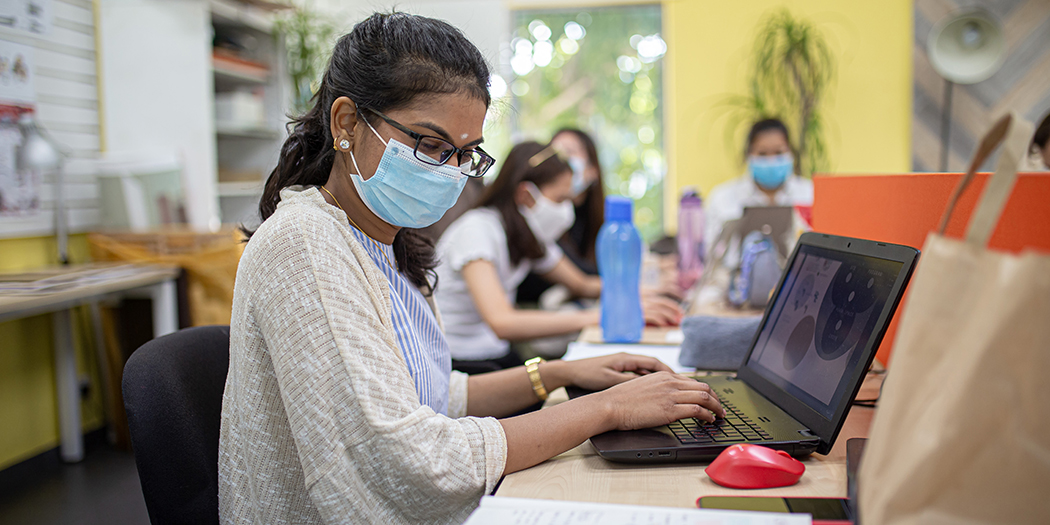In fall 2020, when college students across the nation returned to their campuses after the COVID-19 pandemic shutdown the previous spring, many worried that the influx of people would put the surrounding communities at risk. But new research, conducted in Centre County, Pa., home to the Penn State University Park campus, and in the surrounding communities, reveals that despite a rise in cases among returning students, the use of behavioral interventions protected the local non-student population from experiencing a similar spike in cases.
“Our research challenges a lot of the assumptions that were made about the COVID-19 risks to non-students in college communities following a return of college students to campuses,” said Nita Bharti, Huck Early Career Professor and assistant professor of biology, Penn State. “Ultimately, Penn State’s return to campus operations did not cause excess COVID-19 cases per capita in non-student residents around the university.”
In fact, she added, non-student residents of Centre County experienced fewer COVID-19 cases per capita than neighbouring counties, likely due to the community’s self-imposed stay-at-home behaviours.
Bharti explained that about 30,000 students returned to campus in fall 2020, down from about 40,000 in the year prior to the pandemic. Penn State provided COVID-19 testing for these students from Aug. 7, 2020, onward and reported anonymized cases in a public dashboard. The researchers compared these data to publicly available, county-level COVID-19 cases from the Pennsylvania Department of Health for Centre County, as well as the six adjacent counties.
In addition, the researchers compared movement and activity patterns derived from mobile devices within Centre County to the neighbouring counties. Specifically, they used SafeGraph’s mobile device-derived daily visit counts to certain points of interest, such as businesses or attractions, within the counties to obtain an estimate of mobility outside the home.
The results were published in Scientific Reports.
According to Bharti, in Centre County, COVID-19 cases increased in the student population soon after students returned to campus in August 2020.
“This increase among students was not surprising given the challenges students faced with distancing and quarantining,” she said.
Interestingly, she added, the outbreak among students did not result in an outbreak in the local community above what would be expected, given that the pandemic was rapidly spreading throughout the U.S. at the time. By contrast, the neighbouring communities experienced higher case counts, even though they do not contain large universities.
Bharti said the lower case counts in Centre County were likely due to the fact that non-student residents restricted their movements to a greater extent than residents of the surrounding communities.
“Self-imposed stay-at-home behaviours among Centre County residents may have limited transmission between students and non-student residents of Centre County and slowed transmission among non-student residents,” said Bharti. “Students, on the other hand, had a higher rate of cases per capita because they weren’t able to distance and quarantine as effectively as non-students. Our findings are important because they clearly show that applying the same restrictions and guidelines to different populations will not be equally effective.”
https://medicalxpress.com/news/2022-03-behavior-limits-covid-university.html


